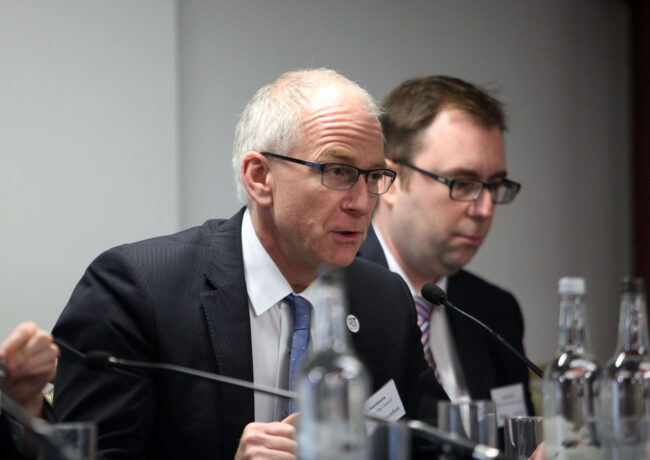Beardmore: Affordability has to be on Manchester’s agenda
Paul Beardmore, Manchester City Council’s director of housing, retires today after 42 years working in the city region’s local government, moving from his first career as a food hygiene inspector for Rochdale Council, to become one of the key players shaping Manchester’s residential expansion.
After an apprenticeship with Rochdale Council in environmental health and food hygiene, Beardmore quickly moved into the housing department, joining in 1986 and progressing up to head of housing. After 33 years with Rochdale, in 2009 he joined Manchester City Council.
The council has not yet appointed a replacement, although a hire is “imminent”, Beardmore told Place. Until his replacement is in post, his duties will be covered by his two deputies, Martin Oldfield and Ian Slater.
His career in housing has seen a revolution across Greater Manchester, according to Beardmore, partly due to the significant shift towards joint working when the 10 councils formed the Association of Greater Manchester Authorities, later to become the Combined Authority.
Beardmore also took on a dual role in 2014, as chief executive of Manchester Place, the partnership between the council and Homes England targeting the delivery of 25,000 homes.
As a local lad, Beardmore has tracked the rapid development of the city centre. “As a kid I came into Manchester and saw all the bomb sites… the picture of Manchester has so dramatically changed. The growth in residential has been amazing.”
Focusing on delivering homes in the city centre was a priority from the start of his tenure as director, Beardmore said. “I remember Sir Howard Bernstein told us, in 2009, the depths of the recession, that we now must concentrate on growing the residential base in the city. I thought at the time ‘no pressure then!’ But there was the feeling that that’s what we needed to do, so we had to make it happen.”
Of the many changes to the housing sector, “the rise of PRS is one of the biggest revolutions”, Beardmore said.
“The private rented sector since 1960s has been tarred with the ‘poor quality’ brush, made up of rag tag landlords. It was on a massive decline until the 1990s when Thatcher deregulated it, but it was still based around amateur portfolio holders.
“While it’s still suffering against that image, now we have institutional investors backing it, investors which have the same aims and goals as the city council. It’s been a great journey; four out of five of apartments being built are PRS.”
With that level of scale, was he concerned there would be enough occupiers to go around?
“At the moment I’m supremely confident they’ll be occupied. For the flats coming into the market the demand is overwhelming,” he said. “But where that appetite is coming from is what to keep an eye on. People are moving into Manchester, but also more local residents are moving into the centre, from older stock.
“It’s this secondary stock that is going to form an interesting market – people will move out, the blocks will have to be reinvested in for PRS, or brought back into the market for owner-occupiers, which there is a massive demand for.”
Were there areas that the council hasn’t always got right?
“The next debate is the sizes we’re building at – one, two and three-bedroom needs have to be considered. The city has encouraged two bedrooms or more, but one beds are letting and selling faster, so maybe we were overbalancing,” he said.
“And affordability, of course, has to be on the agenda. There’s massive press on lack of affordability, which is frustrating, as there are affordable homes being built, but not to extent that Government gives grant funding for it.
“Within a 10 minute walk of city centre we have lots of affordable housing, so I don’t think there needs to be a policy just yet. Manchester is still very compact, however if it reaches a London scale then there’s the argument for factoring affordable housing into city zones.”
Despite retiring, Beardmore said that he’s not going to disappear completely from the housing market. While a work/life balance is the priority, he has “irons in the fire” on future roles, with more to be revealed in the coming weeks.





One of the good guys who I’m sure will still contribute in the sector moving forward. All the best Paul.
By Bday
A very balanced view and of course one that will not be reported in the mainstream press as it contradicts the hysteria that Manchester is somehow less affordable than Kensington nowadays.
By Unaplanner